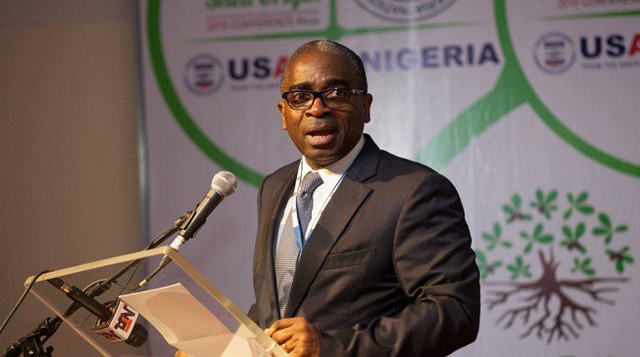Despite having a backlog of unpaid incentives for non-oil exporters hovering at about N1.2 trillion, the Federal Government will this year, honour only N5.12 billion of such debts based on provisions made in the 2019 budget.
Indeed, there were expectations last year that some of the backlogs would be cleared before third quarter end, but the delayed implementation of the 2018 budget, under which provisions were made for some debt payments, further prolonged the issuance of promissory notes to the beneficiaries.
While industry operators say exporters are owed approximately N350 billion towards the revised Export Expansion Grant (EEG) scheme claims that are due to them for the year 2007 to 2016, the Nigerian Export Promotion Council (NEPC) puts the figure at about N1.2 trillion.
Although the proposal to issue Promissory Notes in lieu of EEG claims for the legacy EEG claims of non–oil exporters was approved by the Federal Executive Council (FEC) in 2017, the EEG claims has been processed and approved at the series of meetings of the EEG Implementation Committee (EEGICM).
The Manufacturers Association of Nigeria (MAN), however described the allocation as grossly insufficient to drive the needed impetus.According to MAN, the proposal for 2019 is below expectations and may not aid the realisation of a sector that will contribute significantly to the country’s Gross Domestic Product (GDP).Indeed, the local producers said the manufacturing sector could be in for a tough operating environment in 2019, seeing that the needed supporting policies and infrastructure have not been given sufficient priority.
Recently, the Executive Director and Chief Executive Officer, Nigerian Export Promotion Council (NEPC), Olusegun Awolowo, had appealed for patience from the non-oil exporters, noting that government had done the necessary things for the implementation and payment of outstanding debts.
Awolowo, who was represented at the yearly general meeting of the MAN Export Promotion Group (MANEG), by NEPC Director, Policy and Strategy, Abdullahi Sidi-Aliyu, said: “The EEG for so many years is what many exporters leverage to expand their activities. In the absence of such incentives, non-oil export activities continued to dwindle, and this affected the volume of non-oil export that is being recorded. We are advocating that the EEG be revitalised, and exporters given access to the incentives to boost their activities.
“On the issue of promissory notes, we are appealing to non-oil exporters to be patient. Government has done all that is necessary for the take off of the programme.”On his part, the Chairman of MANEG, Chief Ede Dafinone, decried the lack of incentives for the non-oil sector, adding that since the collection of unutilised Negotiable Duty Credit Certificates (NDCCs) by the Federal Government, no payment had been made to the exporters, thus putting the exporters in a difficult position with their banks.
Some non-oil exporters had told The Guardian that the possibility of experiencing a revamped non-oil sector before year end was elusive going by the lingering challenges, and government’s inability to implement key incentives needed to stimulate the sector’s operations.Recall that Nigeria’s exports remained heavily dependent on crude oil, according to the latest merchandise trade data released by the National Bureau of Statistics (NBS), accounting for 85.4 per cent of export transactions in the third quarter (Q3), despite commitments. by the federal and state governments to the diversification agenda.













